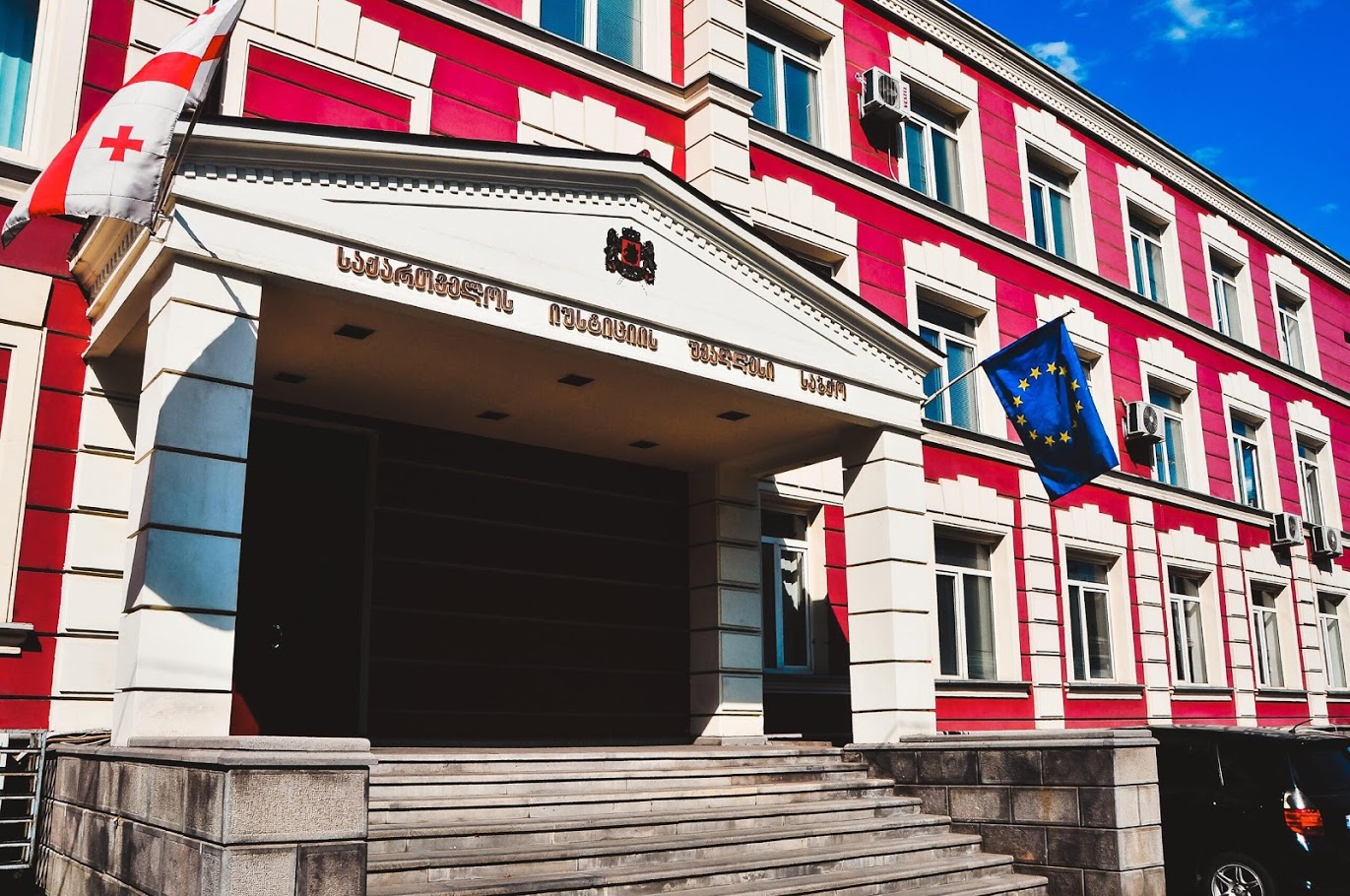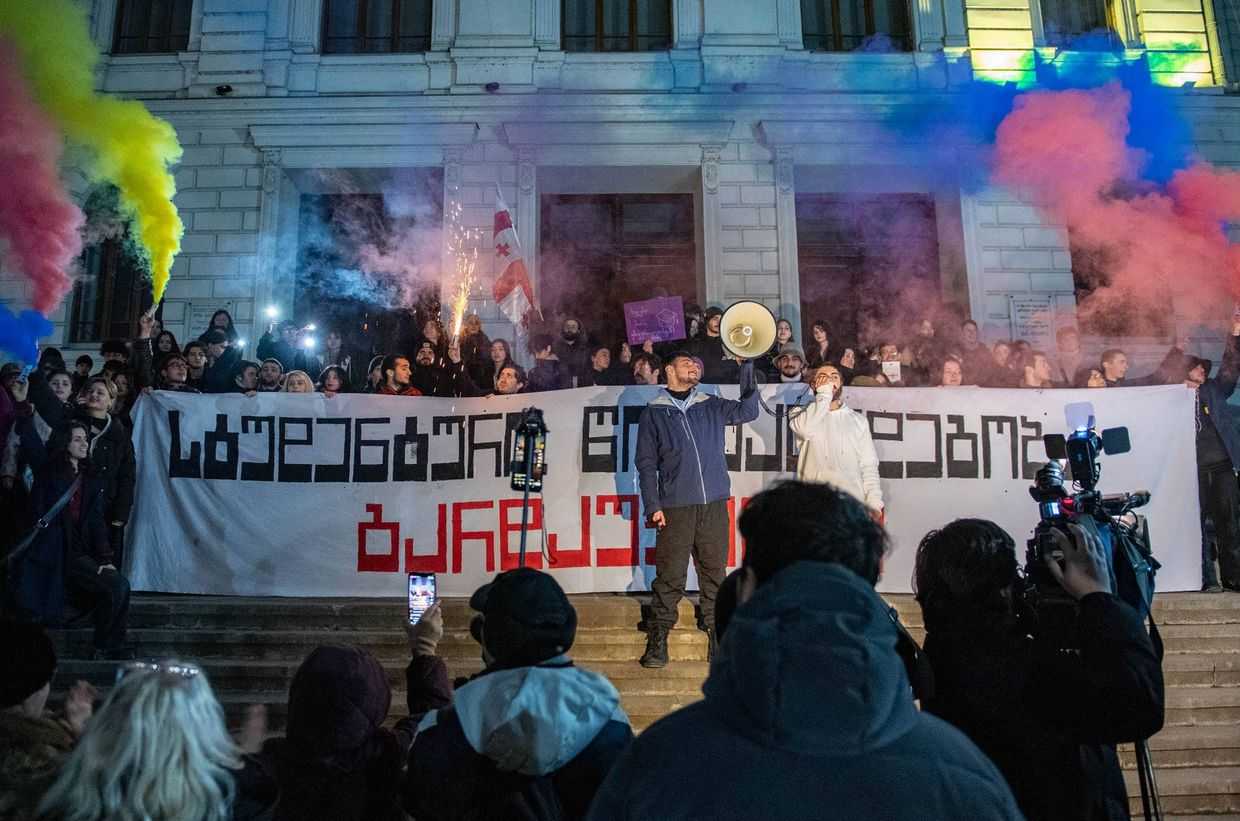

A study by CRRC commissioned by Transparency International found that 53% of respondents believed the Georgian judicial system was ‘under influence of the ruling party’.
According to the results of a recent survey conducted by the Caucasus Research Resource Centers (CRRC), only 5% of Georgians said they fully trusted Georgia’s courts, while 20% said they did not trust them at all.
The results of the study, commissioned and published by watchdog group Transparency International Georgia, said that 53% of respondents believed the Georgian judicial system was ‘under influence of the ruling party’, 48% that it was ‘biased’, and 43% that it was ‘under the control of an influential group of judges’. Only 25% said that the courts were ‘just’.
Of the 43% who said the Georgian judicial system was managed by a group of influential judges, 87% agreed they were supported by the current government while 94% agreed that this group of judges ‘should leave the judicial system’.
CRRC surveyed 2,087 individuals nation-wide between 20 February and 5 March, indicating a +/- 2.3% average margin of error.
‘The clan’
The ruling Georgian Dream party’s plan to go forward with the lifetime appointments of Supreme Court justices offered by the Georgian High Council of Justice (HCoJ) caused a public backlash for Georgian Dream and the loss of its constitutional majority in parliament.
The ‘group of influential judges’ mentioned in the survey referred to the majority of members of the HCoJ. This group has been referred to by several leading judicial reforms advocacy groups as a ‘clan’ responsible for delivering political rulings during the previous government which would ensure that the Georgian courts would continue to operate under the ‘total control’ of the executive branch.
The Georgian Young Lawyers’ Association, Transparency International Georgia, the Georgian Democracy Initiative, and the Human Rights Education and Monitoring Centre (EMC) are among the opponents of the appointments, and are united with others under the Georgian Coalition for an Independent and Transparent Judiciary.
According to the survey results unveiled on 5 April, 83% of those questioned agreed that ‘the judges who delivered unjust rulings due to pressure in the past […] should not serve in courts anymore’. Additionally, 46% said they must be replaced by new judges in order for the judicial system to ‘regain public trust’.
In an interview on 5 February with TV Pirveli, Parliamentary Speaker Irakli Kobakhidze, who is also executive secretary of the ruling Georgian Dream party, insisted that ‘those [judges] who did massively bad things then, do good things now’, creating backlash both within and outside of his party.
Head of the International Society for Fair Elections and Democracy (ISFED) Mikheil Benidze told OC Media that Georgian Dream lost an opportunity to execute judicial reforms while the tenure of influential judges was approaching an end.
‘The public’s low trust towards the court system is a result of the government’s unsuccessful reforms in the judicial system’, Benidze said, adding that no one wanted to ‘cleanse the court’ from the judges, an idea the Georgian Dream leaders claimed to have refrained from.
‘What they should have done instead was to outline clear criteria for the appointment of candidates which would have filtered out judges with whom there are many questions in a civil way’.
One of the most outspoken judges on the HCOJ, Sergo Metopishvili, rebuked the survey on his Facebook page, calling the publication ‘another fake gossip’.
The parliament majority VS NGOs
The same survey indicated that the Georgian parliament, headed by Kobakhidze, was among the least trusted institutions in Georgia. Only 16% gave partial or full credibility to them and 43% of respondents said they ‘rather’ or ‘entirely’ distrusted the parliament.
People’s trust in parliament, according to survey results, fell behind that of non-governmental organisations, which garnered 25% of the full or partial trust of respondents.
On a number of occasions, Kobakhidze, a frequent critic of leading NGOs, disparaged what he said was a low level of trust towards NGOs among Georgians.
Kobakhidze stepped up his criticisms in early October 2018, as the presidential pre-election campaign kicked off.
In an interview on 2 October with opposition leaning TV channel Rustavi 2, he labelled a group of rights groups to be ‘13 politically biased men and women’ who would ‘fail to garner 1% of votes if they participated in elections’.
Speaking to OC Media, Benidze noted that the role of advocacy groups was to help state institutions to attain the public’s trust, not to worry about their own popularity.
Kobakhidze and other Georgian Dream leaders indicated several times that ISFED and Transparency International Georgia were the primary targets of their criticism. However, they never explicitly made that distinction in most of their statements.
The ruling party has also been dismissive of criticism by advocacy groups over a number of high profile unsolved investigations as well as of reports on the presidential elections in October and November, insisting the groups were ‘biased’ and under the influence of the formerly ruling United National Movement (UNM) party.
Speaking at a 22 March conference organised by the Council of Europe and Foundation for Electoral Systems dedicated to the November 2018 presidential elections, Kobakhidze once again lambasted ISFED and Transparency International for being biased against President Salome Zurabishvili and Georgian Dream, which endorsed her candidacy.
Trust towards other institutions
In the survey, the media ended up bottom of the list with the smallest percentage of respondents (3%) ‘entirely trusting’ them.
The Georgian media also got the biggest percentage (56%) compared to other institutions of the ambivalent ‘I partially trust them, partially — not’ answers.
Religious institutions, teachers, and doctors topped the list, coming in at 74%, 62%, and 47% respectively, saying they were ‘fully’ or ‘rather trusting than not’ trusting them.









